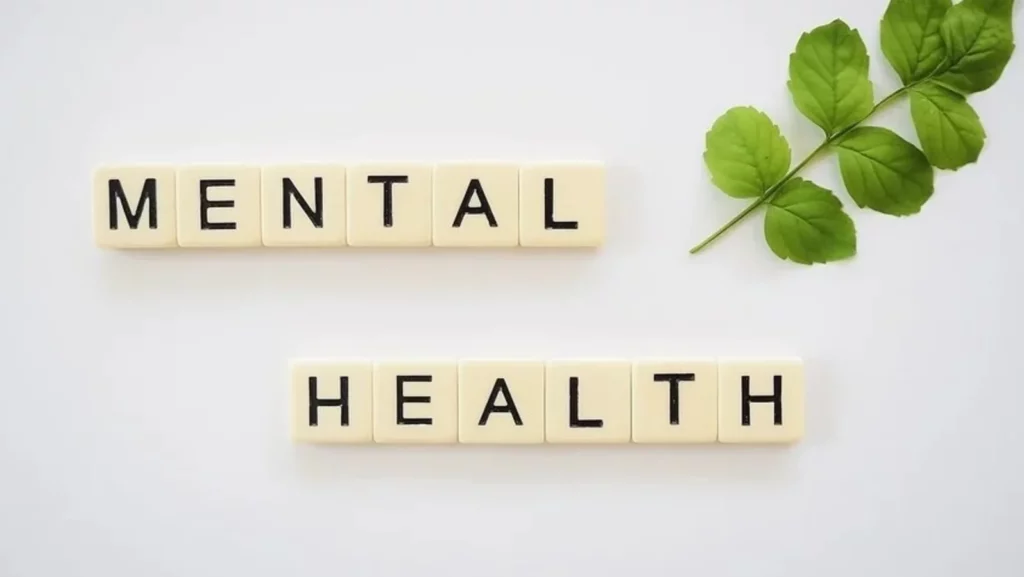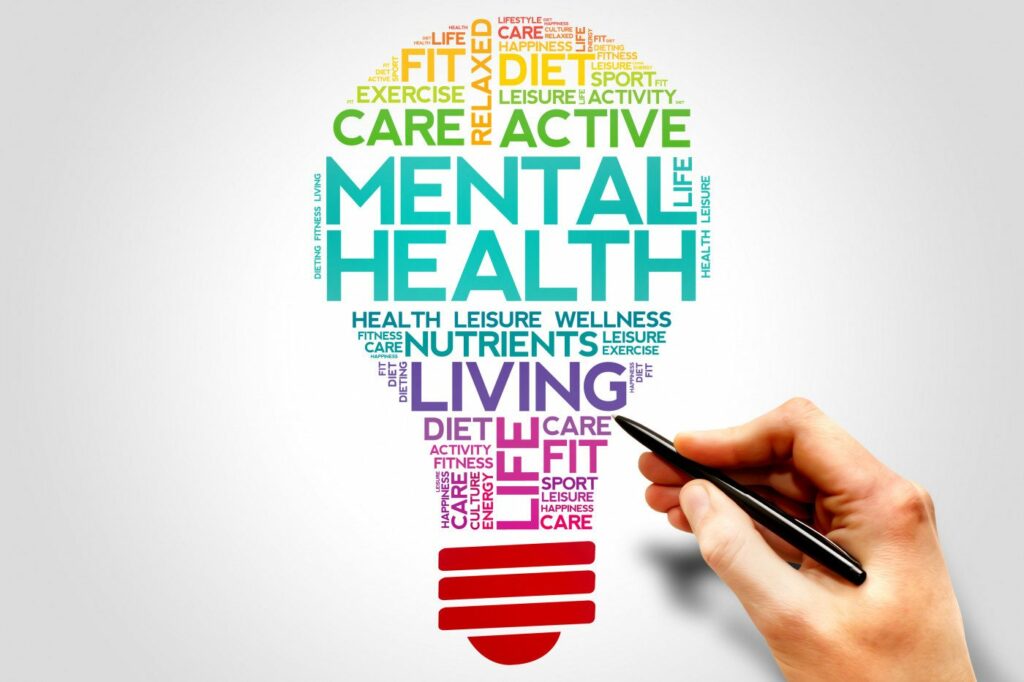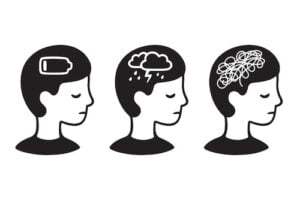Mental health is a topic that has become more prevalent in recent years, and for good reason. Mental illness affects one in four adults globally. We all know someone who struggles with mental health issues; it might be you or someone you love. It’s important to build awareness of mental illnesses so people can get the help they need. This blog post will talk about how to build your foundation for better mental health. It will discuss self-care, which is really important, and other things that contribute to emotional stability.
Contents
What Is Mental Health?
Mental well-being refers to an individual’s ability to enjoy life and cope with its challenges constructively. The term “mental illness” has been used as a broad label by society for years now; This concept does not describe the types of human suffering in our community. These include conditions such as anxiety, addiction, and depression.
Building a foundation for mental health is important. People have different ideas of what is normal. They might feel excited or sad or bored. You can handle these feelings in different ways. There are four main categories that encompass every person’s wellbeing: physical, emotional, social, and spiritual. If one area isn’t good then the rest will be negative as well.
Everyone needs some degree of each category in order to maintain balance within their life. In reality, we all want more than just healthy thoughts but also our entire being including our emotions, relationships with others & ourselves(spiritual).
What Is Mental Well-Being?
- Mental wellness is all about feeling good, not just doing good. When you balance your mental health with other aspects of your life, you can live a happy and healthy lifestyle. You don’t let stress get in the way of achieving personal goals and enjoying time spent with family and friends.
- Based on research, many people define “self-care” as behaviors that help them feel better. These behaviors include taking care of themselves.
- This behavior most often includes eating healthy foods and doing exercise. People spend more money on clothes that fit their body type and they spend time with friends.
Characteristics Of A Healthy Individual

- A healthy individual is one who has good mental health. To be in this state, they have an active lifestyle. These people develop strong relationships through family or friends.
- Some people also do things to help themselves. They might take classes in the community college, or go to seminars at churches.
- You should have a job that pays your bills. And you should also help other people by doing things like volunteering. That way, you are happy and will be able to think about yourself mentally and emotionally.
What Is Mental Illness?

- Mental illness is used to describe a number of mental health conditions. There are many different types, like anxiety, depression, eating disorders, and bipolar disorder.
- According to research “A mental illness is a condition that impacts someone’s thinking, feeling or mood.” This means if you have trouble sleeping at night because your mind won’t turn off so you keep overthinking how tomorrow will go.
- Mental illness is when you are in bad mental well-being. You might not feel good, but there are no physical symptoms. Mental illness is when you do not have good emotions or psychological health.
Symptoms of Mental Illness
Mental illness can manifest in many different ways, depending on the person. Some of the most common symptoms include:
- Feeling sad or anxious for no reason
- Having trouble concentrating or making decisions
- Experiencing sudden mood changes
- Feeling numb or disconnected from others
- Sleeping too much or too little
- Eating too much or too little
- Engaging in self-harm, such as cutting or burning oneself
- Having suicidal thoughts or feelings
If you are experiencing any of these symptoms, it is important to seek help. There are many resources available to those who need it, including mental health professionals, support groups, and online resources.
Causes of Mental Illness
Some people are born with a predisposition to mental illness. Others develop it after bad things happen in their life, or exposure to environmental toxins. Additionally, certain medications or medical conditions can cause mental illness symptoms.
Some of the most common causes of mental illness include:
- Bipolar disorder: Genetics and environmental factors can contribute to bipolar disorder.
- Schizophrenia: Schizophrenia is thought to be caused by a combination of genetics and environmental factors.
- Depression: Stressful life events, such as the death of a loved one or ending a relationship, may trigger depression in some people.
- Anxiety disorders: Anxiety disorders may be caused by genetics, environmental factors, or a combination of the two.
- Substance abuse: People who abuse drugs or alcohol are at risk for developing a mental illness.
- Traumatic brain injury: A traumatic brain injury can cause long-term changes in the brain that lead to mental illness symptoms.
- Stroke: A stroke can cause damage to the brain that leads to mental illness symptoms.
- Parkinson’s disease: Parkinson’s disease is a neurodegenerative disorder that may lead to mental illness symptoms.
- Huntington’s disease: Huntington’s disease is a genetic condition that can cause mental illness symptoms.
- Tourette’s syndrome: Tourette’s syndrome is a genetic condition that may cause mental illness symptoms.
- Anemia: Anemia, a blood disorder in which the body doesn’t have enough red blood cells or hemoglobin, may lead to mental illness symptoms.
- Thyroid conditions: Thyroid conditions, such as hypothyroidism or hyperthyroidism, can lead to changes in mood, which may contribute to mental illness symptoms.
Why is Building It Important?
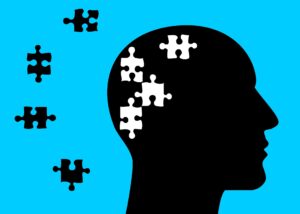
- Building mental health is good for everyone. You can use it to recover from something or to manage your day-to-day life.
- When we have low levels of Mental Health, it makes it difficult to do things. It also makes us unhappy. This will make it hard for us to do well at work, in our personal lives, and on the road.
- Mental Health is the foundation of well-being. It helps people flourish and achieve their potential to live happy, meaningful life. Many people do not understand mental health. They also don’t know where to get treatment when they need it.
- It’s hard for people to ask for help when they need it. They are afraid of being judged or because of the stigma that surrounds mental illness. But we can change this. We all have a role in helping our loved ones get the right care. We need to make sure they do not become addicted to something, or that they do not commit suicide.
How To Boost Your Mental Health?
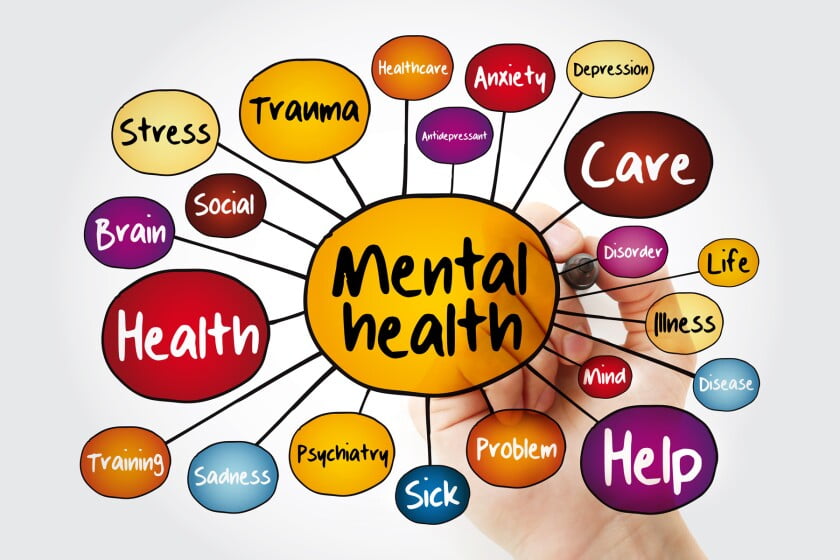
- The word “positive” is often used to imply something good, but it isn’t always the case. There are times when being positive is good. Sometimes you need to accept what is happening without getting stressed about it.
- Many studies have shown that practicing positivity can boost happiness levels by making people more persistent in achieving their goals.
- Talking to people also helps them feel better. They should focus on what makes them happy. Talking to people will make their mental health better.
- Doctors found that some people who have depression or anxiety still have feelings of positivity. If you find the things that make you happy and bring them out, then your mental health will get better.
Some more tips that you can follow are:
- Stay positive: Find the bright side of things when bad things happen to you. Instead of focusing all your energy on self-pity or feeling depressed because something went wrong – which only results in negativity anyway.
- Try looking at what good things could come from this experience instead. You might have failed a test, but that’s not the end of the world. You now know what you need to work on more before taking another test.
- Try Gratitude: Every night before you go to bed, try writing down three good things that happened during the day. This way, you will remember them the next day. By doing this, you’re making yourself more aware of how many good things are actually happening around you even when bad things happen too.
- Exercise regularly to make sure negative thoughts won’t take over your body and bring them down with them. It is important to take time every day for exercise. Exercise can help you feel better. It can help your mood and it can even help you sleep better. Exercise will also help your self-esteem and it will keep your stress levels down so that depression cannot happen.
- Relaxation Techniques: A person with mental health problems may face many challenges. There are various factors that can affect these issues, including family history, genetics, and environmental influences.
- Take regular breaks during work hours where possible to relax by doing activities such as listening to relaxing music or yoga. There are many relaxation techniques that can help improve your mental health. Yoga and meditation are two of the most popular methods for staying relaxed.
- Prioritize Sleep: There are several things that need to happen when preparing yourself for bedtime; make sure they all take place before getting into bed. This includes turning off cell phones, shutting down electronics (TVs, computers) at least an hour before trying to go to sleep.
- Paying Attention To Present: The more time you spend with what is in front of you, the more aware you will be. The trick here is to not focus on the present all day long. But also, do not think about the past or worry about the future. Instead, use your time wisely and pay attention to what is happening now.
- Be Kind To Yourself: Being kind to yourself is important because it builds mental health. When you are being kind to yourself, you have more positive energy. This makes the stress of everyday life seem less overwhelming and easier to handle.
Conclusion
Mental health is a state of emotional and psychological well-being. It is an important aspect in our lives that affects how we think, feel, and behave. If you are struggling with mental illness or addiction it can be hard to maintain your physical and emotional wellness so talk to someone who understands what you’re going through for help getting the support you need! You deserve happiness and success no matter where life takes you.
If you are looking for affordable Online Counseling MantraCare can help: Book a trial therapy session
